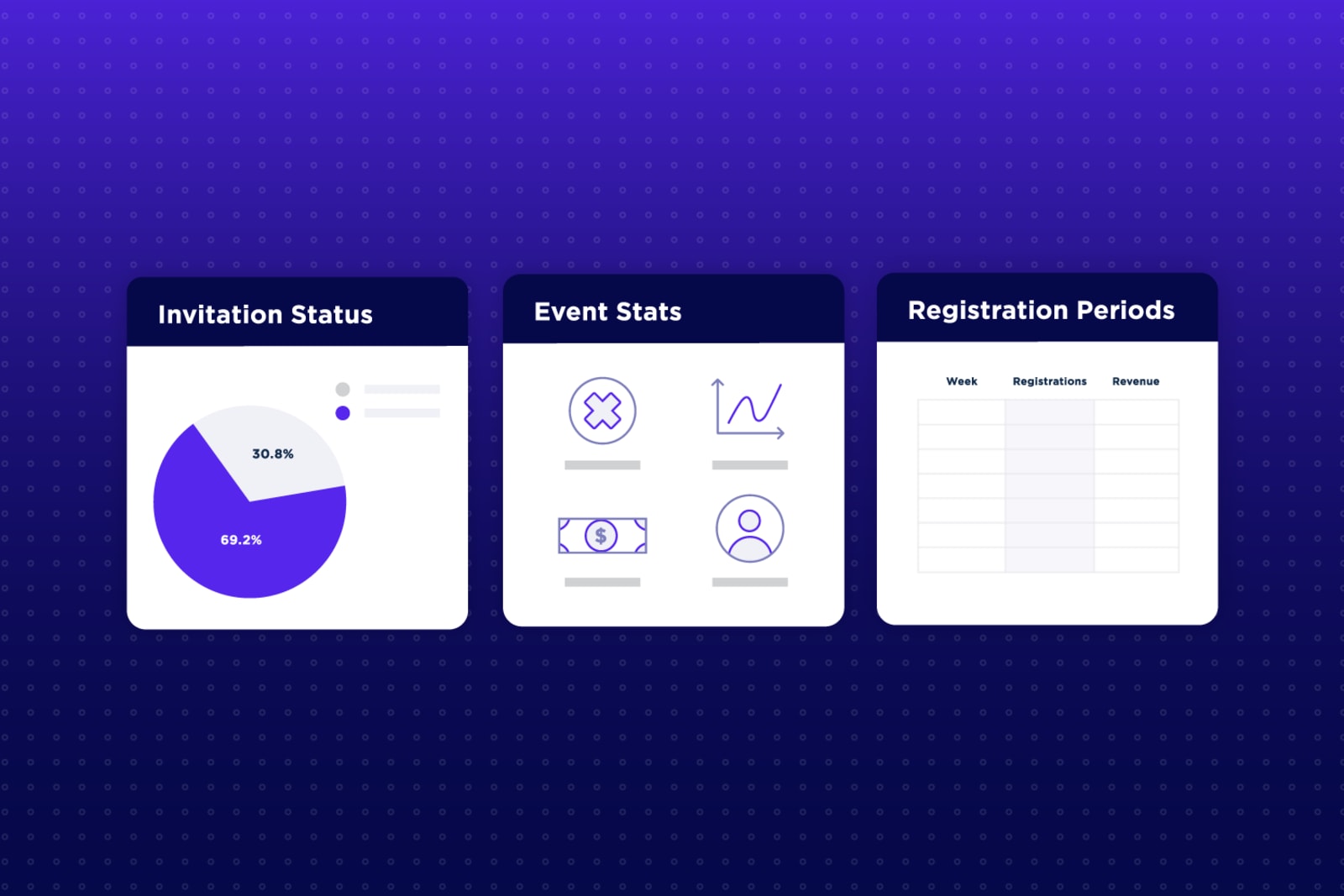
Let’s face it, the outbreak of the COVID-19 pandemic has fueled the adoption of event management software (EMS). In an effort to smother the spread of the virus, lockdowns were imposed all over the world, affecting multiple industries and verticals. Small to medium to large enterprises have rewired the work-from-home model to protect their most valuable asset, their employees.
According to Grand View Research, Inc, the event management software market is anticipated to reach $14.8 billion by 2028, registering a CAGR of 12.5% from 2021 to 2028. As both SMEs and large enterprises gradually migrate their IT infrastructure to cloud networks, to enhance business continuity and improve business operations, the need for software solutions that streamline the event management and marketing process is crucial.
So what should you look for in a fully integrated event management platform? Let’s take a look at 5 key components of a best-in-class event management solution.
- Event website builder
- Robust registration features
- Event marketing tools
- Reporting & analytics
- System integrations
Event website builder
Back in the day, event organizers relied on third-party page builders and agencies for designing their event websites. In both cases, the generic event website was rarely integrated with the proper tools needed to launch and execute a successful event – like event marketing or event registration tools.
As we examine the landscape today, we expect an EMS to come with a drag and drop page builder (WYSIWYG), such as WordPress, for easily creating your event website. Event marketers should have the creative freedom to build beautiful, on-brand websites without requiring developer resources.
In addition, an EMS solution should offer the ability to add custom code (HTML, CSS, and JavaScript) for those event marketers looking for advanced customization. It should also offer embeddable widgets for use on other websites.
Want to learn about Swoogo’s event website builder and more? Check out Event Personalization: 6 Ways Swoogo Can Help.
Robust registration features
Planning your event with better backend organization is crucial. In the past, event marketers relied on specialized event registration solutions. While this approach benefited smaller events, the solution wasn’t applicable for events that needed scalability.
The event registration features that come with event management software should allow event organizers to establish a variety of ticket types, each of which comes with its own parameters.
Utilizing Swoogo’s event registration features gives event organizers the ability to send registered contacts segmented emails, while offering the industry's best form experience. This data can also be sent to CRMs like Salesforce, and marketing automation platforms (MAP) like HubSpot, for juxtaposing data against other key metrics and data points.
Event marketing tools
Once your event website and registration workflow are live, it’s time to bring home the bacon, oops, I mean registration. You’ve put in the work, countless hours making phone calls, now it’s time to let the doves fly.
As we all know, the single most effective channel for promoting an event is email. Marketers in the past needed to rely on third-party email solutions to communicate with attendees, keynote speakers, sponsors, and other key stakeholders.
Some event management platforms boast about their email marketing tools; let’s pump the brakes. At Swoogo we take email very seriously, and provide you with a registration management tool so that you can segment attendees and send them only relevant information. This allows you to easily build, and beautifully customize, on-brand emails.
Reporting & analytics
Once upon a time, fully integrated event management software, events were a black box. In coping with the disruption caused by the COVID-19 pandemic, an advantageous opportunity arose for event managers to leverage a resource we call Attendee Intelligence — the combination of registration data and attendee activity data.
We’re not saying you need to be a detective, but tracking your attendee activity data leads to powerful marketing outcomes. With a fully integrated event management platform, organizers can view data in many easy ways–resulting in more insights and better decision-making.
Use attendee analytics to:
- Display ticket and revenue information
- Match content interaction with specific audience members
- Easily store, find, and action your analytics insights in your favorite CRM
- Deliver booth attendance lists, broken down by content type
System integrations
Why have you collected all of the data if it can’t be accurately, efficiently, and securely passed to the rest of your team? It’s likely that your event management software will still need to “talk with” solutions that are outside the scope of events, like marketing automation software or a dedicated CRM.
With Swoogo you can:
- Track event success with analytics that your sales and marketing team will value
- Feed event data into your own systems
- Amplify your sales and marketing efforts
- Advanced integrations for advanced use cases
Let's say your sales team needs to know which attendees attended your event. Rather than manually exporting and importing a list of attendees, Swoogo has the power to sync automatically with sales CRMs. So your sales team is never left out of the loop.
Here’s another example: an event marketer can integrate Swoogo with their marketing automation system to send out large email campaigns that go beyond the scope of just those who registered for an event.
Wrap up
Maybe Swoogo is the perfect fit for you, maybe it isn’t. But regardless of which event management platform you ultimately lean toward, don’t settle for less. A robust platform with integrations and a broad spectrum of analytics and reporting is crucial in the extremely competitive events industry. Get the tools you need and set them working for you. Your ROI will thank you.

